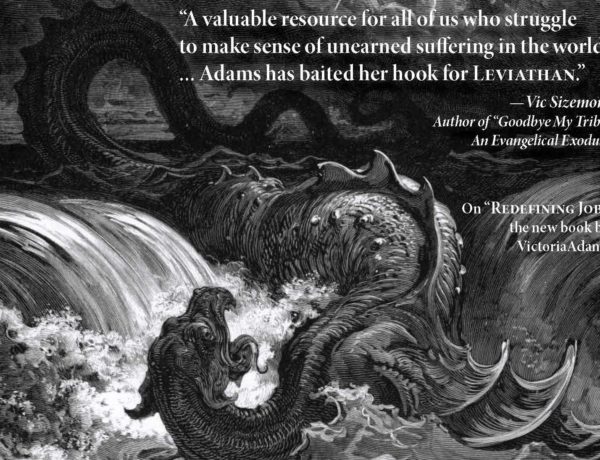Originally published June 28, 2015
Some time ago I wrote an article to be shared on a friend’s website. Patrick was kind enough to invite me as a guest blogger so that I could discuss something near to my heart that I was not prepared to share on my own site. Silly me, I thought it didn’t really fit. But it does. It fits very well. Why? Because I am a student of anthropology, philosophy, history and religion. I see in history and in literature so many facets of the human condition and one thing is clear: division destroys. Hatred destroys. Respect, equal access to law, genuine concern for fellow man—that builds. This rather long article is about the cultural approach to the union of two people (and ever so rarely more) into an emotional, physical and legal entity for mutual success and support.
Let’s start with a bit of history. Marriage, as defined by anthropologists, is a broad subject and the more we try to describe it the fuzzier things get. At the most basic level of understanding, marriage was developed as an institution to provide two things: sexual monopoly (which may be with more than one individual), and some kind of birth-status rights for any offspring. This second issue also involves inheritance rights and rights to property. Some anthropologists feel that the marital status in some of these cultures did not actually protect the birthright of any offspring; it was simply a definition of status. What we do know is that marriage apparently developed as a way to (hopefully) ensure exclusive access to one’s partner and therefore grant some guarantee of the linage of offspring and to link kinsmen together in some bond. Cultures from the beginning of time have developed and supported various forms of this institution which included monogamy, polygamy, and polyandry (more than one husband). Group marriage is very, very rare; however marriage between two persons of the same sex is not.
In ancient Greece, no civil ceremony was required. Their tradition was something like modern day common-law arrangements where mutual agreement and public acknowledgement were sufficient to create the relationship. In Rome, a woman’s whole heritage transferred from the family of her birth to that of her husband’s. The only way a woman could keep her rights of inheritance was through something called a “free marriage” where she stayed under the authority of her father. However, she did not share in any rights to her husband’s family fortunes. Sounds more like a “friends with benefits” than some kind of commitment.
During the first century CE, Christian marriages were considered to be a private matter between the couple and their families with no specific religious or civil ceremony required. Around 110 CE, Ignatius of Antioch introduced the idea that marriages should be performed within the church under the authority of the bishop to ensure that things were going according to God and not the lust of the couple. By the 12th century women were made to take the name of their husband and such unions required the permission of a parent as well as the church. During the middle ages the churches registered marriages (this was not obligatory) and the mere mutual statement by each member of a union in the presence of a witness was sufficient to form a union. As the middle ages progressed and the Protestant faith began to expand, the Roman Catholic Church determined that offspring of a Protestant marriage (i.e., one not performed in a Roman Catholic Church) were bastards and could not inherit the fortunes of their parents. I’ll let you guess who did collect those fortunes.
History is just as rich in traditions and records of relationships involving people of the same gender. Anthropological studies have indicated that pre-industrial cultures were split fairly equally between those who didn’t care one way or the other and those who had some social taboo against it. Native American peoples considered homosexual or bi-sexual individuals as being of “two spirits” and really didn’t get overly stressed over the matter. In fact, if parents determined that their child was a “Two Spirit” the child was given the choice of which path they would choose to follow and he/she was raised accordingly. Many became shamans.
In Asia, recorded history for same-sex relationships goes back as far as 600 BCE. In fact, in the Thai culture these persons were treated as a third gender. They were and are generally accepted by at least some of the Asian societies. Records show that it was not unusual for Thai royalty to keep consorts of both sexes.
And, the list goes on. Every culture since mankind has had anything that could be called a culture has developed ways and means to deal with relationships between its individual members. In almost every case those traditions, rules and practices were meant to accomplish two things:
- A cleaving together in some form to indicate that these particular individuals are committed to each other emotionally and physically; and,
- The formation of a legal relationship that protected inheritance, lineage and legal status.
Even in modern times the arrangement of common law unions may start without religious or civil affirmation; but quite frequently end up with some sort of input from an official party to determine what obligations, rights and privileges belong with whom. In the least it generally requires a legal document filed somewhere that says the union is no more.
Why, say you, did I go into such great lengths to explain all this “relationship” stuff? Because it appears that our society has become terribly embroiled in a debate about relationships without really understanding what the issues are. Perhaps it is a bit understandable that after centuries of being bombarded with the terrible consequences of “forbidden love” some persons in our society may feel it is their duty to squelch even the appearance of such relationships, let alone any legal acknowledgement. They are entitled to their opinion. The scripture they quote, however, was directed to a people that wished to be “apart,” that wished to be “different,” and, consequently, to follow a certain set of rules. Scripture does NOT tell the Hebrews to march out into the world and destroy every homosexual that they find; it tells them how to conduct themselves if they choose to accept a certain way of life, if they want to commit to a certain covenant.
There is also clear evidence that the original interpretation of “homosexual,” or the laying with partners of the same sex was twisted something mid-20th century into something the scripture never intended to say. As far as the fate of the infamous Sodom and Gomorrah, those two cities had problems that went far beyond the mere issue of homosexuality. For instance, there was human trafficking (Lot offered his virgin daughters to the crowd to avoid surrendering his guests), and kidnapping (people had to lock themselves in at night to avoid rampaging mobs), to mention a few. This was not a nice place to live by any civilized standards. And in the end? The cities would have been spared if only 12 righteous persons could be found. Think of that the next time someone says a whole state or country has suffered great loss due to “sexual orientation” or whatever.
So, we are back to who has the authority to tell a person how he or she should live his or her life (as long as said person is not causing injury to others). As it happens, the person that grants that authority is the individual. The authority over any life is granted to a leadership in a group by the members of the group. If you want to start a club where only people with green eyes and purple hair can join; then that is your prerogative. It is NOT your right to tell the rest of the world they must purchase green contacts and dye their hair. You are not permitted to insist that the whole population performs these requirements even if they are excluded from your group for some reason, or have no interest in joining in the first place. Yes, I know. The choice of one’s partner(s) in life is far more serious than this silly scenario, it is far more personal. And so, the choice should remain with the persons involved.
If you choose to adhere to a tradition that marriage is between one man and one woman and you feel that marriage should be blessed by a church; then by all means follow that path. Please be sure you do not run to the nearest steeple. Understand that if you accept the blessings of a priest, minister, rabbi or whatever that you are saying publically that you agree with their point of view regarding your union and what it means. The Catholic Church has this part down pat. Some denominations accept the validity of same-sex marriages and will respond accordingly. Some, obviously, do not. In any event this type of commitment is a spiritual one, one made based on the beliefs, dogmas, and requirements of that particular institution. The adherents of any one belief system, however, do not have the right or obligation to enforce their point of view on the rest of the population.
If, however, a couple wishes to announce to the world that they have formed an emotional and intimate relationship, that they intend to go forward in the world building financial security and mutual support, and that they wish to have the legal protections and obligations available for such unions under the law of the state in which they reside; then they should have that right, regardless of their gender or choice of mate. There is no requirement that any religion accept this union, many of them don’t even ask for that. These people simply want the ability to have the person in the world most important to them able to share financially, emotionally and legally with their successes and failures. They want the person closest to their heart in the hospital room with them at moments of life and death decisions. How dare we as a society deny an individual the comfort of a loved one in an hour of need? And yet by saying their relationship is not valid in some way, that is precisely what we do.
I truly fail to understand why persons normally so committed to keeping “government” out of their own lives can be so insistent on using government to interfere in the lives of others. Yes, the country was founded by “god-fearing” men (and women). Those men, however, were deist who believed in the basic good in the heart of humanity. They were not evangelist trying to save the world. Perhaps they misplaced their faith in our ability to build a country based on the common good of people and blinded themselves to what seems to be our mutual drive to divide and destroy. Allowing committed individuals the legal protections and rights granted under civil or even religious unions is a matter of human rights and deserves the support of a civil authority. All citizens have an equal right of protection under law and in justice. Such a policy will not destroy the country. Really, it won’t.
One final word so that the record is complete and I ask that if I am quoted that it should be in context. One can at least hope. As it happens I am a Christian. Not a member of any particular institution, but, nonetheless, a Christian in thought process. The man attributed to the founding of that particular branch of human belief was quite different, in my eyes, than often described. He loved to feast with prostitutes and tax collectors. He was clearly able to display anger at the sight of bankers and merchants doing business in the heart of temple courts. He conversed with the outcast and never asked someone how they managed to get themselves in such a fix when they needed help. He chose to love, He chose to help. This is the one I choose to follow.




No Comments